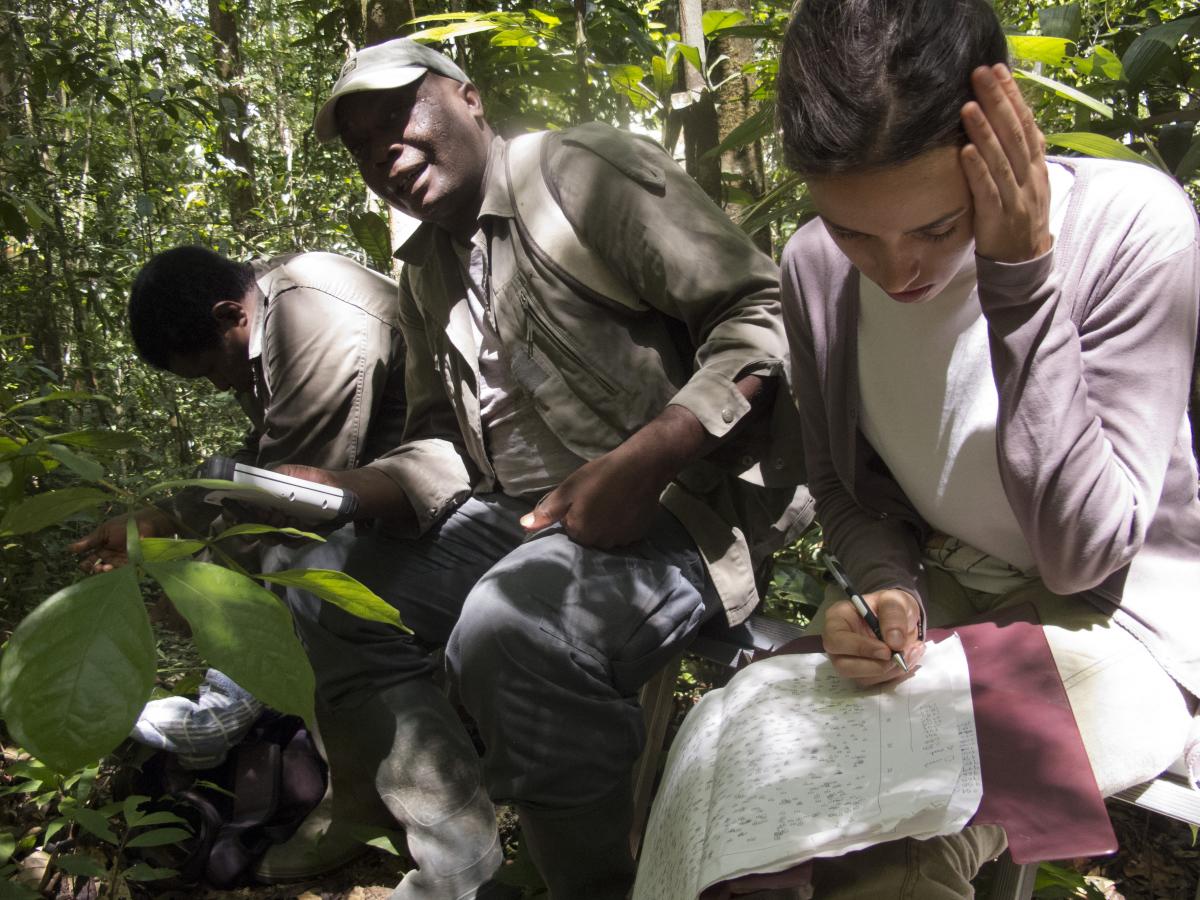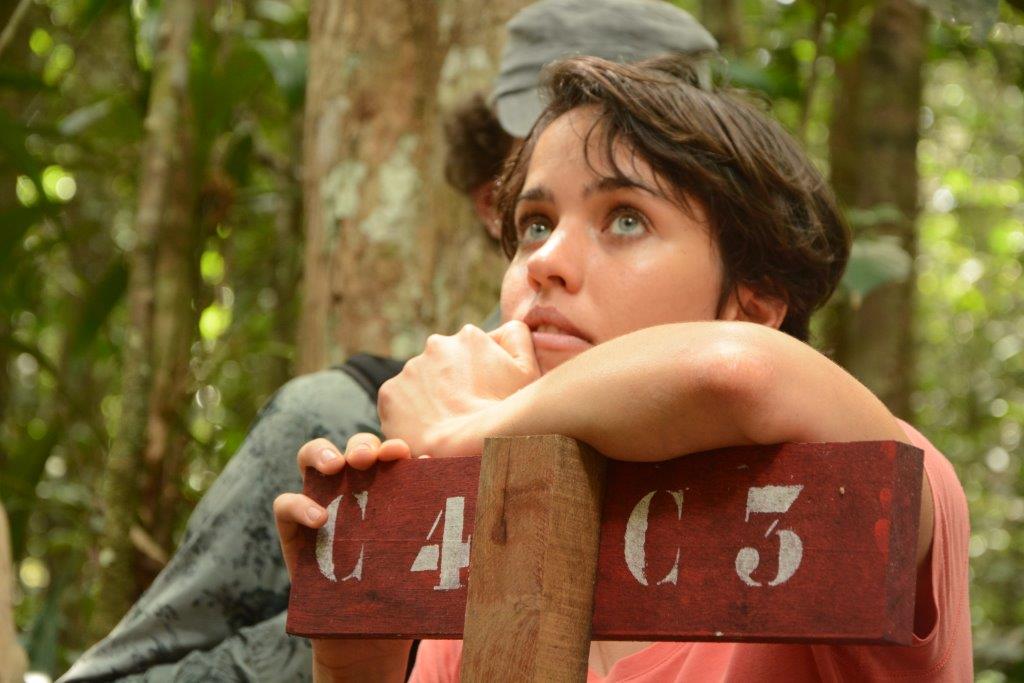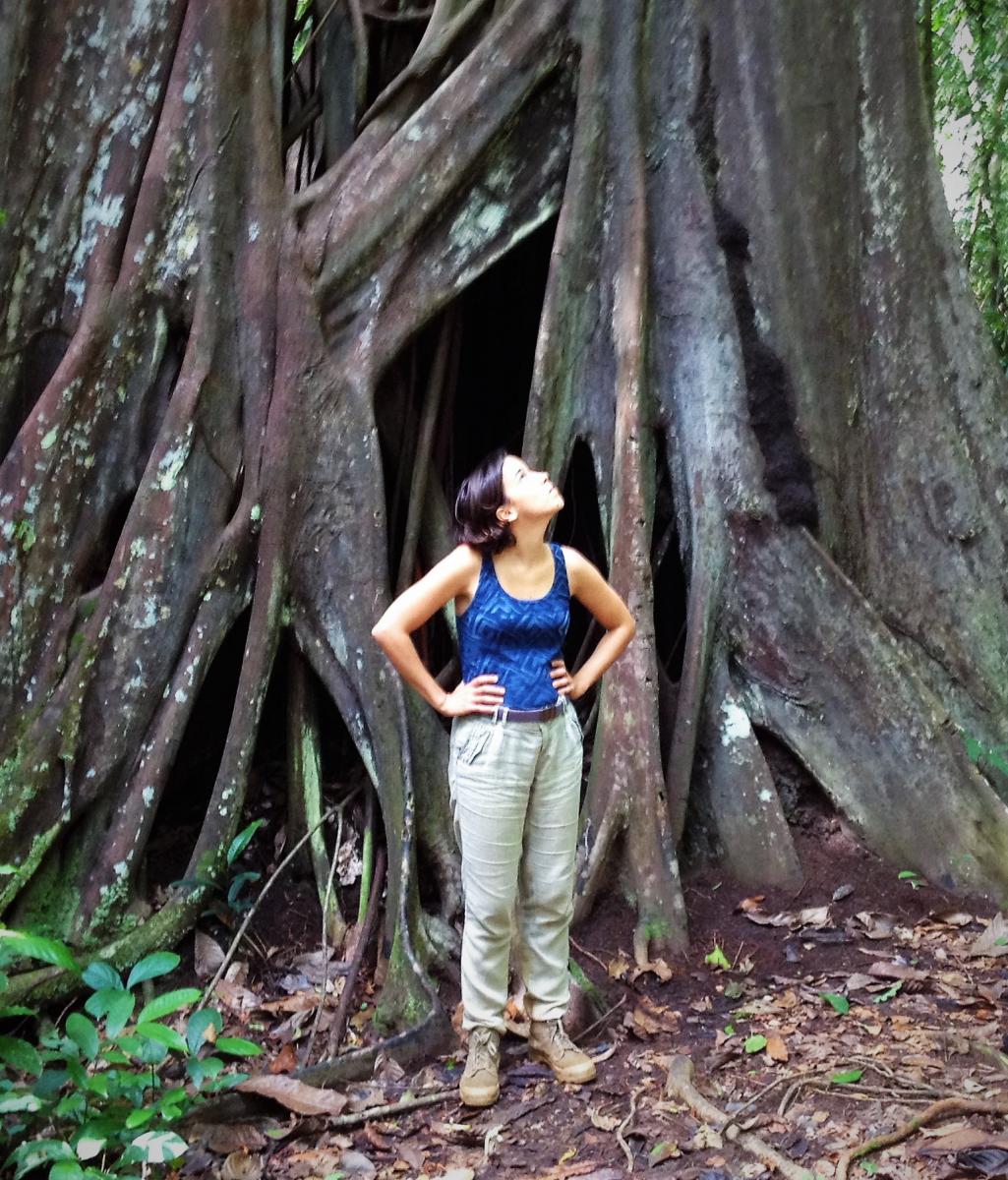Camille Piponiot joins ForestGEO as postdoctoral fellow
ForestGEO is pleased to welcome Camille Piponiot as a postdoctoral fellow with a focus of global forest carbon dynamics. She will work closely with staff scientists Helene Muller-Landau and Kristina Anderson-Teixeira.

While doing her PhD work at the University of French Guiana, Camille used data from the Tropical managed Forest Observatory (TmFO), a pan-tropical network that seeks to understand how logging impacts tropical forest ecosystems over the long-term. Specifically, Camille modeled the effects of selective logging practices in the Amazon by measuring the ways in which carbon sequestration capacities, timber volume, and biodiversity changed after logging. Camille will continue her study of carbon dynamics throughout her fellowship with ForestGEO and noted a keen interest in understanding the effects of disturbances on carbon dynamics in forests around the world.
“I think this is a particularly important subject as we are witnessing an increase in the frequency and intensity of forest disturbances (fires, droughts, storms, logging, etc.) but still do not know what the consequences will be for the forest of tomorrow,” she said.

PhD work brought Camille to French Guiana, and now she returns to Panama, home of the Smithsonian Tropical Research Institute, and also the country where Camille lived for much of her youth. She speaks French, English, Spanish, and Portuguese, which has helped her tremendously throughout her scientific career. Because of her fluency in Portuguese, she was able to collaborate with colleagues in Brazil and contribute to the supervision of a Brazilian intern during her PhD work. Further, the capacity to read scientific literature, masters and PhD theses, and official government reports in French, Spanish, and Portuguese provided a broad base of text to inform her understanding of logging, carbon dynamics, and forest ecology.
We look forward to Camille’s contributions and insights into global forest carbon dynamics throughout her fellowship. Welcome, Camille!

